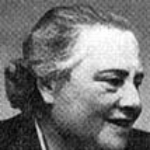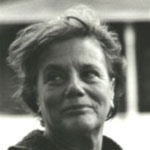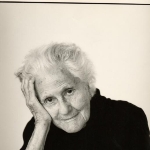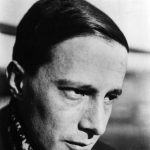Polanyi is remembered today as a hungarian-american economic historian and political leader, whose "substantivist" theory exerted decisive influence on economic anthropology. Karl Polanyi is known for his opposition to traditional economic thought and his book The Great Transformation. The Great Transformation became a model for historical sociology. Polanyi’s theories eventually became the foundation for the economic democracy movement.
Background
Polanyi was born into a Jewish family. Karl Polanyi was the son of a Hungarian engineer and entrepreneur, Michael Pollacsek, and a Russian mother, Cecile Wohl, who was a familiar figure in Hungarian intellectual society. Michael Pollacsek was a railway entrepreneur. He never changed the name Pollacsek and is buried in the Jewish cemetery in Budapest. Karl Polanyi's mother was Cecília Wohl. The name change to Polanyi was effected by Karl and his siblings. Polanyi was well educated despite the ups and downs of his father's fortune, and he immersed himself in Budapest's active intellectual and artistic scene.
Education
At the university Polanyi participated in the foundation of the radical and influential Club Galilei, which would have far-reaching effects on Hungarian intellectual life. Karl Polanyi served as the first President of this Hungarian cultural movement of radical students.
Career
Polanyi was a cavalry officer the Austro-Hungarian Army in World War I, in active service at the Russian Front and hospitalized in Budapest.
From 1924 to 1933, Karl Polanyi was employed by Der Oesterreichische Volkswirt, a leading economic and financial weekly of Central Europe, published in Vienna. He specialized in international affairs and acted as joint editor until 1933, when the rise of fascism in Austria and Germany forced him to resign from the journal. He emigrated to London, but continued to contribute articles to the Volkswirt until 1938. In his Vienna years, he conducted a small unofficial "seminar" at his home on a model of a democratic associational socialist economy.
In 1935, Karl Polanyi received an offer from the International Institute of Education to speak at American universities and colleges on current world affairs. In the course of several lecture tours in the United States, he visited thirty eight states.
From 1937, Karl Polanyi earned his living as a tutor for the Workers Educational Association, the adult education extramural program of the Universities of Oxford and London. His lectures on English social and economic history and international affairs directly contributed to The Great Transformation.
In 1947, Karl Polanyi was appointed Visiting Professor of Economics at Columbia University, New York. Until retirement in 1953, he lectured on General Economic History, in a course described as dealing with the "Origins of Economic Institutions" supported by a grant from the Council for Research in the Social Sciences at Columbia University. Because Ilona Duczynska was denied entry to the United States, on account of former communist party activity in Hungary and Austria, in 1950 the Polanyis established their home in Canada, in Pickering near Toronto. Polanyi regularly commuted to New York City.















